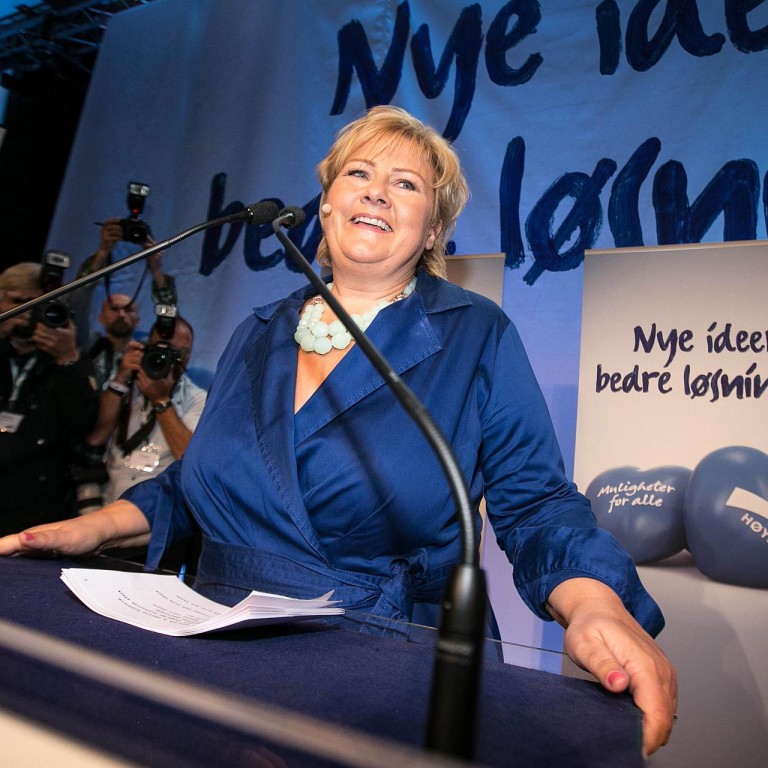
Norway’s Conservatives face tough coalition talks after win
Conservative premier likely in Norway for first time since 1990 after poll win over Labour-led government, but party must split power with allies
Norway's Conservatives face tough negotiations to unite the potential coalition partners after ousting the Labour-led government on promises to cut taxes and loosen the state's hold on Scandinavia's richest economy.
The Conservatives, the Progress Party, the Liberal Party and the Christian Democrats won 96 seats of the 169 in parliament, according to a 93 per cent count of the vote. Labour Prime Minister Jens Stoltenberg's three-party coalition won 72 seats. Labour prevailed as the biggest party with 55 seats, while the Conservatives jumped to 48 seats.
Conservative leader Erna Solberg, 52, will need to cobble together a coalition among her right-leaning partners, which are split on how much of the nation's oil wealth to spend, on immigration policies and on whether to open up new areas for exploration in western Europe's largest oil producer. Solberg would be the first Conservative premier since 1990.
"They have some huge challenges in terms of agreeing on policy," said Johannes Bergh, an election researcher at the Institute for Social Research in Oslo. "The desire for a new government is really strong on the centre-right side so you might see people changing policy positions and really making an effort to agree and to have a new government."
The Conservatives, who pledged to cut income and wealth taxes, boost investment in infrastructure and ease mortgage lending regulations, will enter government as the country hits an economic slowdown. The party has said it will look into restructuring the nation's US$750 billion wealth fund.
Solberg said late on Monday that it will take some days before government talks can start.
Progress Party leader Siv Jensen, who has called for spending more of the nation's oil wealth, said she will be tough yet realistic in the coming talks. The election means the party may join the government for the first time since it was formed as an anti-tax movement in 1973. The party has been an outlier in Norway in part for its anti-immigration views.
The power shift ends eight years with Stoltenberg at the helm of the Labour-led government. The 54-year-old steered Norway through the financial crisis and the 2011 terrorist attacks by right-wing extremist Anders Behring Breivik.
The Conservatives won 30 seats in 2009.
Once a haven from Europe's debt turmoil, the US$500 billion economy is now struggling to spur demand just as the rest of Europe surfaces from half a decade of economic pain.
While growth will still outpace much of Europe, DNB ASA, Norway's largest bank, predicts the country will be the only European nation of the 15 it tracks whose expansion won't accelerate next year.
Labour, which promised to expand Norway's welfare system, lost nine seats for a total of 55, the count showed.
The party told voters it would keep government spending within a self-imposed oil spending cap to avoid overheating the economy.
Stoltenberg said he would resign after the budget is presented in October, according to parliamentary process.
